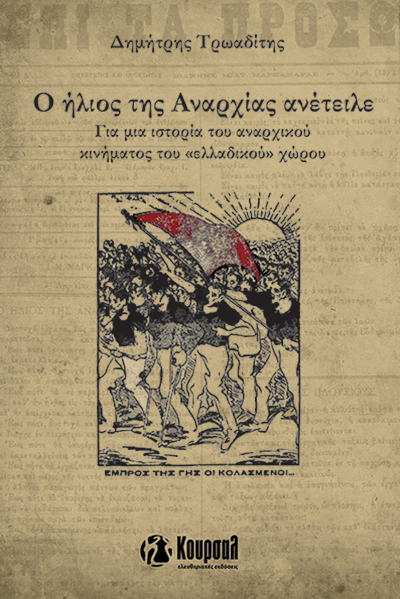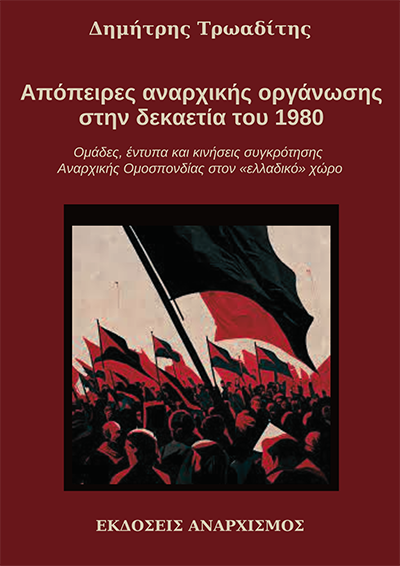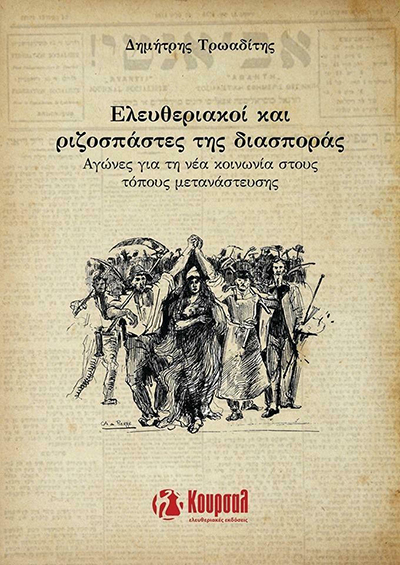Balkan Federalism - The social question and the national question in the idea of Balkan federalism
from the 19th to the 20th century: a short survey
Loukis Hassiotis
Modern Balkan history has often been presented as a sequence of nationalist conflicts, cultural and social backwardness, bloodshed and barbarism. This impression has been created partly by the West, by North American and Western European media, politicians, diplomats and academics, who traditionally portrayed Southeastern Europe as something “alien”, completely foreign to the values of Western civilization, in other words approached them through an “orientalist looking glass, to use Edward Said’s famous term. But this impression has been partly a product of the Balkans themselves, particularly of social and intellectual elites, who used these negative stereotypes for their enemies in order to present themselves as the true Europeans, the true agents of culture in the Orient.
This has been one major trend. A second, parallel one has developed over the ages as a kind of counter-narrative to the first one. This counter-narrative stressed social and cultural affinities, as well as common customs and beliefs that were the result of long inter-ethnic coexistence, a coexistence that was severed through the intervention of the Great Powers and their representatives in the area. This counternarrative, stemming from the romantic tradition, belongs primarily, yet not exclusively, to the Left and continues to this day to present itself as the alternative to official historiographies of Balkan states.
The political motivation behind this narrative is usually the support of a federalist reconstitution of Southeastern Europe and the unity of Balkan peoples with an aim to fend off foreign control and live harmoniously in the region.
It is clear today that both these narratives are equally imaginary. Not because they do not correspond to a certain aspect of reality, but mostly because they both reproduce the stereotype of “Balkan particularities”. Indeed, nationalism dominated the region and often led to bloody interethnic and interstate conflict, but this is also true of other European countries. On the other hand, there were definitely commonalities as well as differences between ethnic groups and languages, but again, this is true of the whole of Europe. But there is a further reason why both these narratives are ideological constructs: They present federalism and nationalistm as two opposing political programmes. Well, that is not precisely true.
In other words, one could say that nationalism and federalism (or generally the idea of Balkan brotherhood and unity) often converged and worked together. This is true primarily of the 19th century, which was crucial for the birth and development of nation-states in the region. Indeed, most 19th century movements that supported Balkan solidarity were fighting at the same time for national sovereignty and the liberation of “unredeemed” brothers under Ottoman or Habsburg rule. This phenomenon is hardly a Balkan peculiarity. The coexistence of national and paneuropean political programmes until the end of the century was a trait shared by all radical antimonarchists, like Giuseppe Mazzini, who believed that independent and unified national-states, legitimized through the votes of citizens, could cooperated easier with each other than authoritarian multinational monarchies. Mazzini’s ideas influenced a lot of European dissidents, amongst which many Balkan radicals who in 1865 established the Democratic Eastern Federation with an antimonarchist orientation, enriched with socialist ideas and influences from Proudhon, Marx and Bakunin – the syncretic mix of democratic, socialist and national ideas is evident in a broad spectrum of Eyropean radicalism from the blanquists to the anarchists (while in SE Europe there are influences from Russian Narodniks and Nihilists). Socialists and anarchists took part in the revolts of Bosnia-Herzegovina and of Bulgaria (1875-78), featured prominently in the movement for Macedonian autonomy (Boatmen, Revolutionaly Macedonian Organization), as well as in the anti-Ottoman revolts in Crete, even the interstate Greco-Turkish war in 1897 (w. Italian and Southern Slav volunteers). Their stance should not be confused neither with the official state position, nor with the dominant nationalist or irredentist ideologies, yet it does point to a certain combination of ideas of liberation at once social and national. Some of them (like Markovic or Botev) supported a Balkan federation that would be the result of social revolution and not interstate arrangements and would be based on the confederationist organizing of traditional Southern Slavic agrarian communities. Others were redesigning the political map of the peninsula by dividing it – as arbitrarily as the generals or the diplomats- into autonomous units and regions, often providing indirect support to the official claims in their countries (like Plato Drakoulis or the “Narrow Socialists”). Here we must note that there were also certain far more consistent positions on the national question, those for instance of the anarchists of Peloponnisos. In the newspaper Νέον Φως (New Light) of Pyrgos we read in an article on Crete (1899): We, the revolutionaries of the future, should not be patriotic and religious revolutionaries, we should be social and international revolutionaries. Our only enemies are the economic and authoritarian tyrants of any religion. Enough with fighting for flags and symbols. It is time we fought for our political, economic and social freedom in general.
We do not know to what extent such ideas had an impact on the local community of Pyrgos, let alone the rest of Greece, we do know however that they were short-lived.
On their part, the Balkan states and the established political and cultural elites never ignored the claims of federalism. The fact that this was almost always in the service of political and diplomatic manoeuvering hardly cancels the impact of federalist slogans on certain parts of society – basically the bourgeois, since the agrarian classes rarely took such matters seriously, and the working class was too small to play a significant role. Conservative and liberal politicians, even kings (like King Otto of Greece and Milan Obrenovic of Serbia) briefly and randomly presented themselves as supporters of some kind of federalism. Especially at times of national crises, insecurity for the future of the nation, for national stability or for the socio-economic status, the idea of Balkan cooperation could easily accompany the chauvinist nationalist rhetoric only to be abandoned for new strategies of power. The same fluctuation can be observed in the 20th century: Periods of nationalist competition and war are followed by phases of interstate rapprochement and calls for Balkan federation, most important federalist efforts being the Balkan Conferences in the interwar period and Tito’s federalist plans right after WWII.
The Left’s position on nationalism was largely determined by two significant factors: the experience of WWI and the creation of the USSR. The first showed up the contradictions of patriotic politics and social democracy. The second led to the domination of Marxism-leninism in the European revolutionary movement and the subordination of a great part of it to Moscow orders. The Bolsheviks supported national sovereignty as a necessary stage in social liberation. They also supported national liberation movements in order to undermine the imperialist powers. At the same time, their proposals for the arrangement of national issues in Europe corresponded completely to the strategic claims of the Soviet State, according to which some ethnic groups were more important than others. During WWII, this policy was adapted to the needs of the struggle of the Soviet State against Nazi Germany: The Communist Parties should first liberate their own nations and fight the conquerors – in other words, class analysis was downplayed in favour of a more patriotic dimension to the controlled national-liberationist fronts (the National Liberation Front in Greece and the Partisans, who by the way, had extremely limited contacts with each other). And because the politics of the Stalinist communist parties could not allow for opposing views within the Left, the dissident internationalists, i.e. the anarchists and the trotskyists, were their primary victims. The Cold War and the breakup of the Stalin-Tito alliance rendered practically unthinkable any return to the idea of Balkan federalism. It would be fair to say that the end of Balkan federalism was finalized with the dissolution of Yugoslavia, save for a few marginal federalist voices.
The interconnection of the national and the social question in the Balkans was probably historically inevitable. Today, however, it is very hard for the “nationally sovereign” Balkan peoples to feel particularly liberated! Will the 21st century indeed be less nationalist because of immigration and “globalization”? This is what part of our struggle and our anti-nationalist solidarity is about.
*Talk/presentation given to the 2009 Balkan Anarchist Bookfair in Thessaloniki. here republished from http://balkanbookfair.blogspot.com.au/




